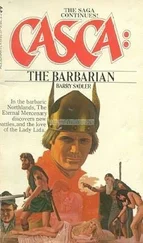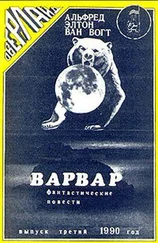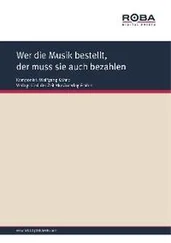In the first place, it had a trunk. A few centuries later, it has it still. But the animal has been made to stand up like a man. Some time later, it loses its eye and its head, after that its body, keeping only its feet, its spinal column and its shoulders. Then it recovers its head, loses the rest, except the feet, then writhes in the form of a serpent. To finish up, it is anything you like; it has two horns and a nipple that comes out of one foot.

Chinese poetry is so very delicate that it never meets an idea (in the European sense of the word).
A Chinese poem cannot be translated. Neither in painting, nor in poetry, nor in the drama, has the Chinese that warm, thick voluptuousness of the Europeans. In a poem, he indicates, and the points indicated are not even the most important ones, their evidence is not hallucinating, they are avoided, they are not even suggested, as it is often said, but rather the landscape and its atmosphere are deduced from them.
When Li Po says to us such apparently easy things as this, and it is one third of the poem:
Blue is the water and clear the moon of autumn
.
We pluck white lilies in the South lake
.
They seem to sigh with love
filling with melancholy the heart of the man in the boat
.
It must be said, in the first place, that the painter’s eye is so prevalent in China that with no other indication the reader sees this in a satisfying manner, enjoys it, and quite naturally can draw a picture of it for you with a brush. Of this faculty, an ancient example:
Toward the sixteenth century, I do not know under what emperor, the Chinese police had made by stealth, by their inspectors, the portrait of every foreigner coming into China. Ten years after having seen only the portrait, a member of the police recognized you. Better still, if a crime was committed and the assassin had disappeared, there was always someone in the neighborhood who could do from memory the portrait of the assassin, which, reproduced in several copies, was sent off at breakneck speed over the great highways of the Empire. Hemmed in on all sides by his portraits, the assassin was obliged to give himself up to the judge.
In spite of this gift for seeing, a Chinaman would have little interest in a French or English translation of the poem.
After all, what do these four lines of Li Po contain in French? A scene.
But in Chinese, they contain thirty or so; it is a bazaar, it is a cinema, it is a great picture. Each word is a landscape, a group of signs, the elements of which, even in the briefest poem, combine with endless allusions. A Chinese poem is always too long, such is its superabundance, but it really excites one, it is bristling with comparisons.
In the ‘blue’ (“Spirit of Chinese Poetry,” by V. W. W. S. Purcell), there is the sign of chopping wood and that of water, not to mention silk. In bright , there is the moon, and at the same time the sun. In autumn , you have fire, and corn, and so on.
The fact is that three lines suffice to give such an affluence of parallels and of fine points that one’s delight is intense.
This delight is obtained by equilibrium and harmony , a state pleasing beyond all else to the Chinaman, for whom it is a kind of paradise . 2
This sentiment, even more opposed to the exalted Hindu peace than to the restlessness and action of the European, is to be found nowhere but among the yellow races.

What the Chinaman knows best is the art of escaping.
A profoundly ‘Pilate’ people. In the street you ask a Chinaman for information, and immediately he runs off. ‘It’s wiser’ , he thinks, ‘not to mix in other people’s business. One begins by giving information, and ends in blows.’
People who run away at the slightest provocation and whose little eyes scoot over to the corners when you look them in the face.
A Chinese general who does it in his trousers, who begs the colonel to take his place in the battle, surprises no one. No one asks to see his trousers. Everybody thinks this quite natural. 3
One day I saw five officers who were swearing to exterminate I don’t remember whom. They looked like rabbits (and yet the Chinese were and are once more becoming the best soldiers in the world).
An old, old childish people that does not want to know what is at the bottom of anything, that has no principles, but ‘cases’; no law, but ‘cases’; no morale, but ‘cases.’
The lie, so-called, does not exist in China.
The lie is the creation of excessively upright minds, militarily upright, just as immodesty is an invention of people far removed from nature.
The Chinaman adapts himself, barters, calculates, exchanges.
He goes with the crowd. The Chinese peasant believes that he has three hundred souls . 4
Everything that is tortuous in nature is to him a gentle caress.
He considers the root more ‘nature’ than the trunk.
If he finds a big stone, with holes in it, or cracked, he takes it in as his child, or rather as his father, and places it on a pedestal in his garden.
When you perceive at twenty yards in front of you a monument or a house, do not imagine that you will be nearer to it in a few seconds. Nothing is straight, infinite turnings lead to it and perhaps you will lose your way, and never reach what was right in front of your nose.
This is to throw the ‘demons’ off the track, as they can only walk in a straight line, but above all because everything that is straight makes the Chinaman ill-at-ease and gives him the painful impression of error.
Morale of a drugged anemic people.
(Is it by chance that the women all have the look of vicious boarding-school girls with their hair cut across the forehead?)
Philosophy for little children. ‘Say a nice “thank you.” Bow, take off your hat, don’t pass in front of the others. Don’t scream. Don’t take up the middle of the street. Think of your future, of your parents. Don’t pinch your comrades, etc.’
‘If you go out with one who is your superior, apply rule 72 in the manual; with a professor, rule 18, for going home, rule No. 44; then apply ritual C and, if a Mandarin is making a visit with bonnet B4, salute him with ceremonial 422, repeating words 4007.’
Thus he will not lose face . From the lowest coolie up to the highest mandarin, the thing is not to lose face, their wooden face, but they do care about it and, in fact, having no principles, it is the face that counts.
Wisdom of little tots, but one that has amazing and unexpected advantages over other civilizations, due, no doubt, to the Chinaman’s sense of the efficacious (he is the inventor of jiu-jitsu).
Courtesy , gentleness, are, eight hundred years before Confucius, indicated as essential qualities in the ‘historic books.’

To obey wisdom, a reasonable politico-shopkeeping wisdom, discussed and practical, has always been a matter of concern to the Chinese.
The Chinese have always demanded wisdom on the part of their emperors. Their philosophers spoke to them as those who have the upper hand speak. The emperor was in fear of having to blush… before them.
The bandit evades the laws of the empire, but not that law.
A thoughtless bandit would never succeed in enrolling a single man.
On the contrary, the wise bandit gets a great deal of support.
In China, nothing is absolute. No principle, no a priori . And nothing shocks the victim. The bandit is considered as an element of natural force.
Читать дальше













